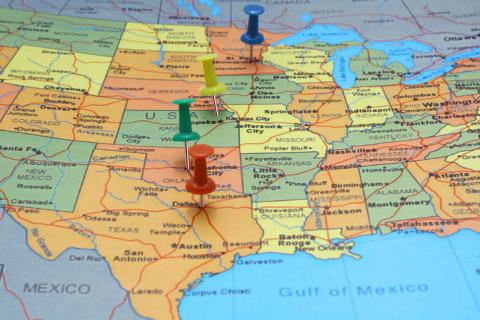While in the throes of senior year, it can be hard to imagine the ways your life may change when you go to college. Whether you’re dreading the day you finally leave the family home or you can’t wait to move across the country, it’s more than likely that you have not thought about the small adjustments that you will have to make when living away from home.
On the other hand, you may not have completely thought about all the new opportunities that arise from being isolated from your old life.
Here are the top three things to consider when choosing between in-state and out-of-state schools.
Finances: tuition and travel
The cost of tuition and housing are often at the top of the list when choosing where you’re going to spend the next four years. Those costs alone are substantial, with the average annual cost of attending a public university being $9,970 in-state, $25,620 out-of-state and $34,470 at a private university, according to College Board.
Wherever you attend school, you’ll also need to factor in the cost of living and travel expenses. If you’re looking into schools in a big city, satisfying your dining and shopping habits may be more expensive in general.
If you decide that you don’t feel like sticking to the campus meal plan one day, it will cost far more money to eat out at a trendy restaurant then to head back to your parents for a home-cooked meal.
Travelling, both around campus and between school and home, will also accrue additional costs. While some people will bring cars to school, in which case you’ll be spending money on gas instead of ride share services, it may be cheaper in the long run to drive back to your home town rather than fly. Of course, all of these expenses vary on a case by case basis, but travel logistics are an important consideration.
Graduate employability: top universities in the United States ranked by employers
Social support and expanding horizons
For every moment you spend dreaming about leaving home, spend another minute thinking about how nice it is to have your family and friends around. One of the biggest social differences between going to school in-state or out-of-state is that your chances of knowing incoming freshmen at your state school are much higher. Spotting a friend or even acquaintance from home on campus will be a welcome taste of familiarity. On the out-of-state side, you have no idea who your best friends will be in a year, which is both exciting and scary.
Going to college is a huge life change – you will learn so much about subjects you may have never considered before and you will meet many new people. When choosing between in-state or out-of-state, you’re basically choosing between the level of social unfamiliarity during your first few weeks. Either way, eventually you’ll find your feet and your dorm will become a second home.
The choice between being close to home or not
Maybe you’re thinking you’ll never be struck by homesickness, but there will be a few days over the course of the semester when hanging out with your family and lying on a real couch seems like the only thing you need. Going to school a car ride away from home means that you can just head back when you need a quiet place to cram for finals, want to do laundry without paying for it, or just need a break.
The important distinction to make here is that some out-of-state schools can be a quick drive away or maybe your in-state school is too far for a weekend trip; it’s more about convenience than state lines.
Staying close to home means that whenever high school friends come to visit from their respective schools, or when you want to see your family, you’re in the perfect position to see them. That safety net, however, may become a little too secure and prevent new friendships from developing.
Going to an out-of-state school means you are forced to make new friends; you have a fresh start and can strike up a conversation with anyone.
However, when you’re deciding between staying close to home or travelling a significant distance for school, try not to let the promise of starting over push you across the country. Wherever you go, you will be able to enjoy new experiences. The real decision is whether or not, at the end of the day, you want to have the option of heading back to your family home regularly.
My final piece of advice is to talk to the college freshmen you know and take the opportunity to learn from their experiences. Everyone’s college experience is different, but it is overall a fun, transformative time that will allow you to grow, wherever you go.
Read more: Best universities in the United States

Comments